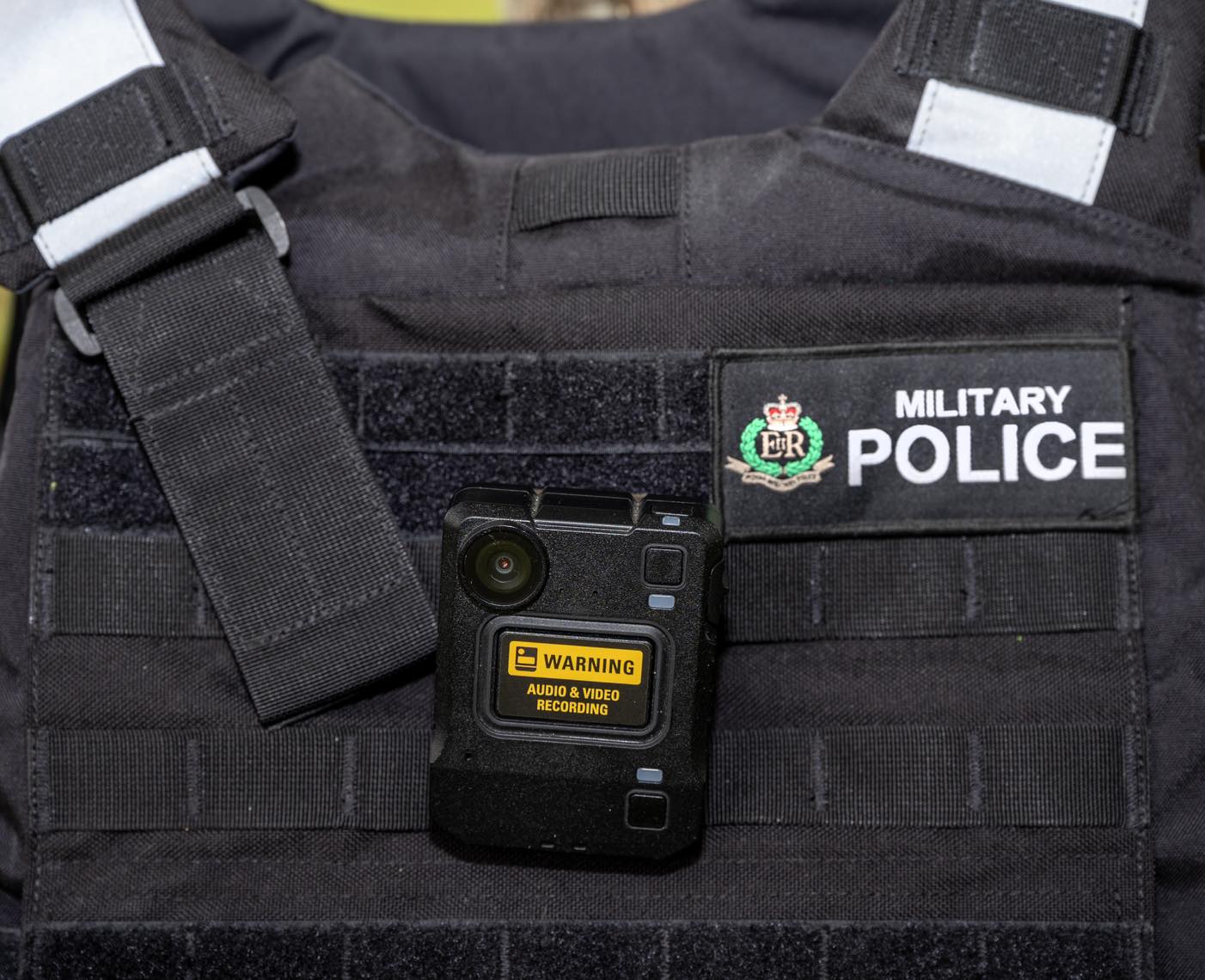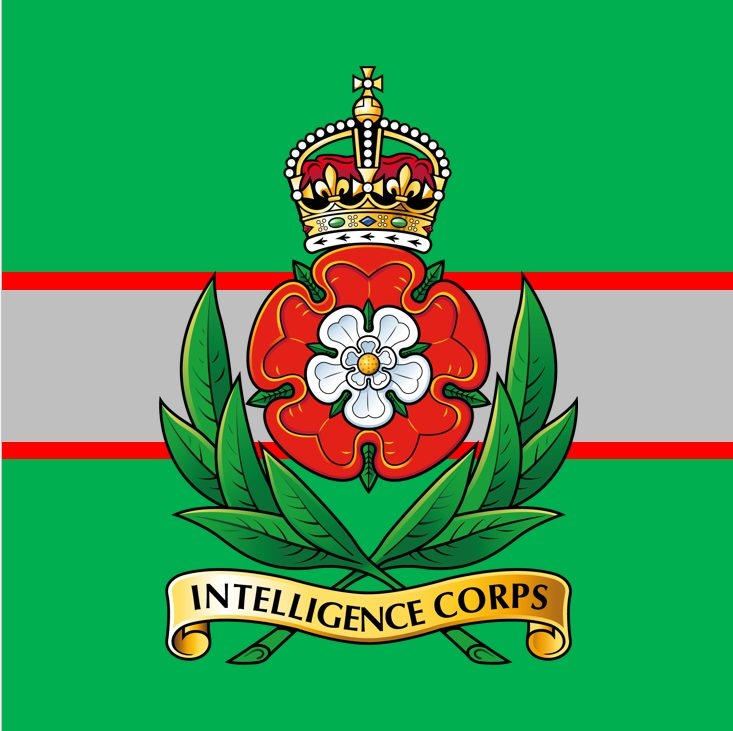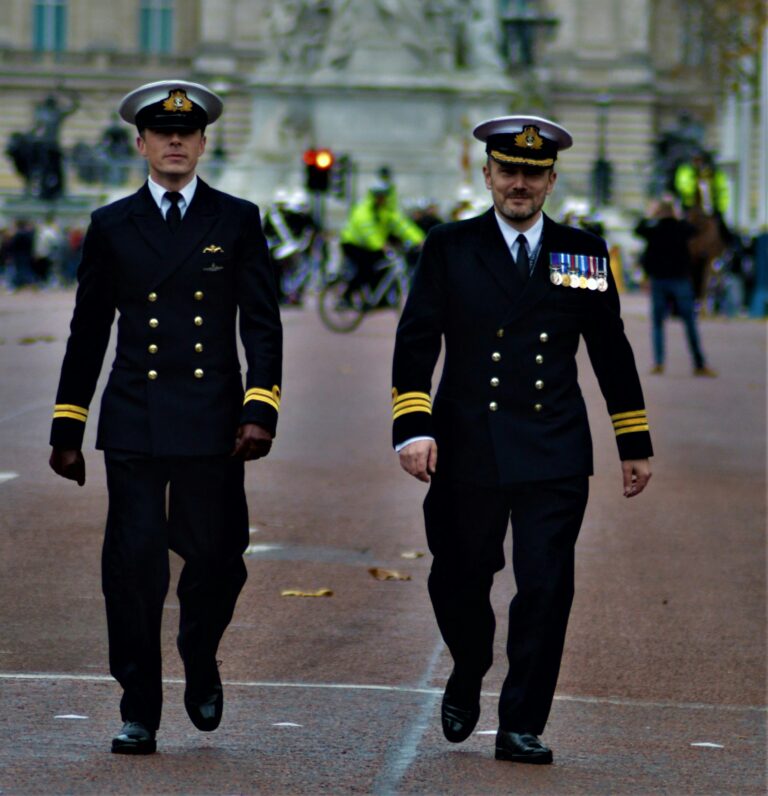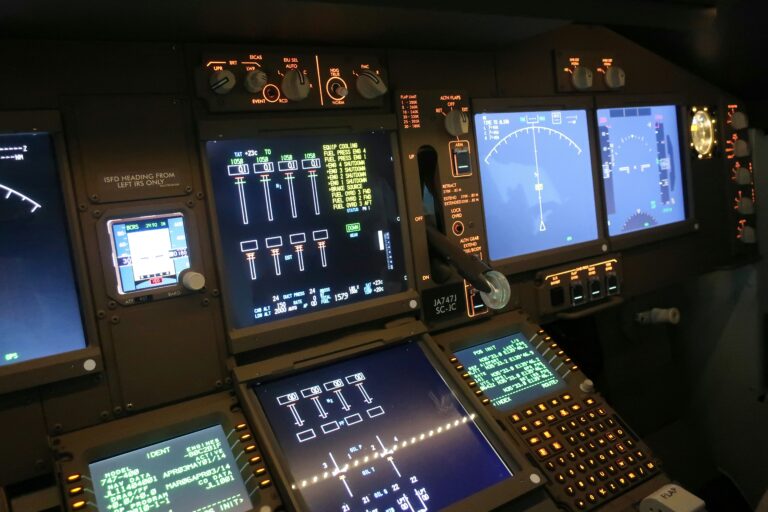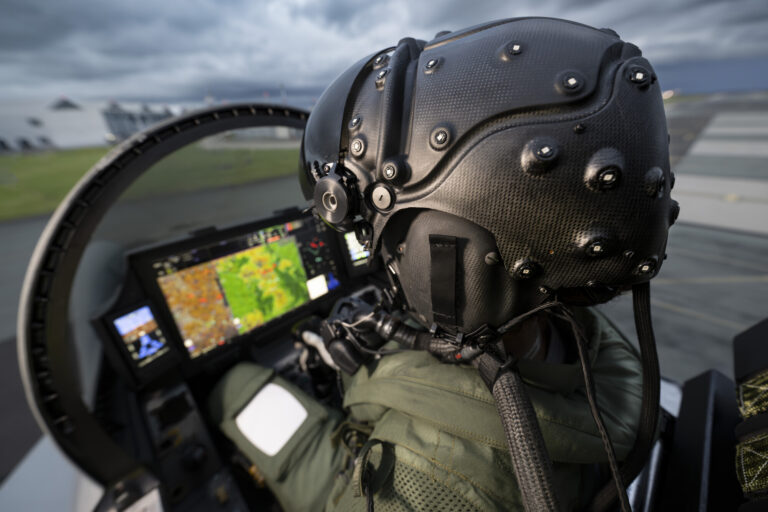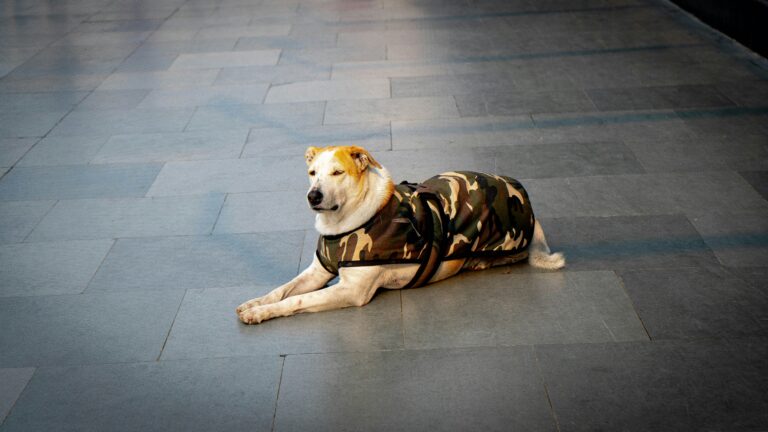Royal Military Police
Introduction
Within the disciplined structure of the British Army lies a force tasked with upholding the law — not just on the battlefield, but within the military itself. The Royal Military Police (RMP) are often referred to as the ‘Army’s police force’, charged with enforcing discipline, conducting criminal investigations, and providing close protection at home and abroad.
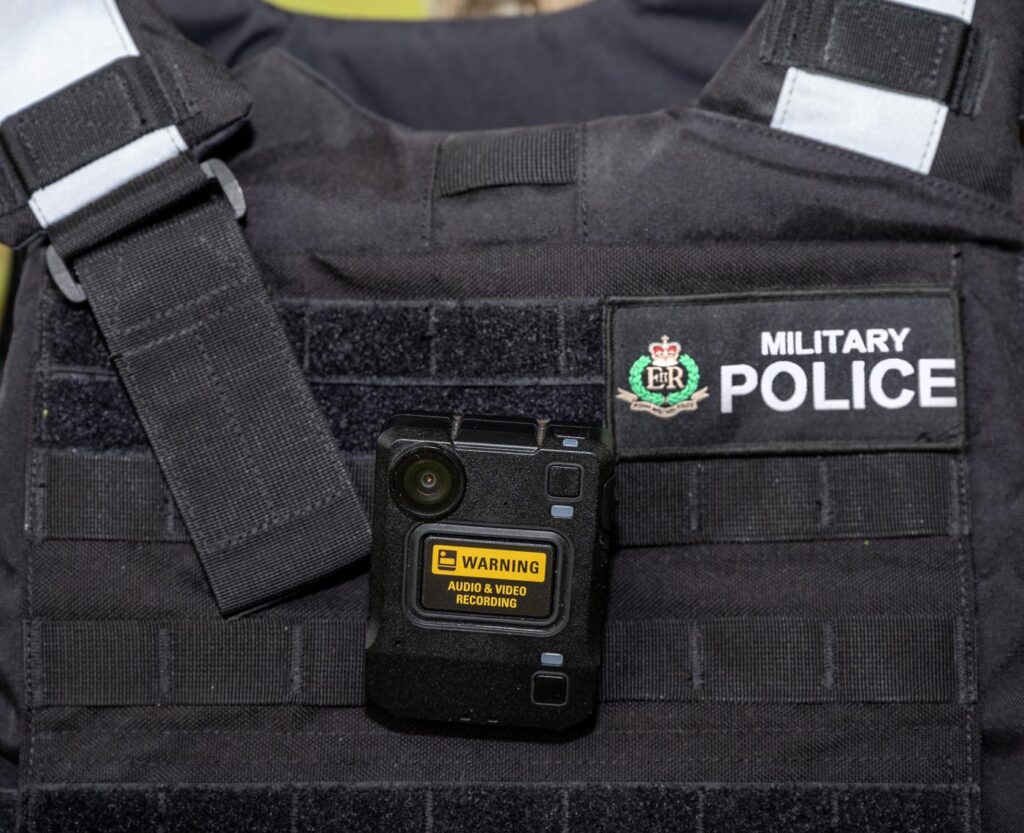
Clad in scarlet berets and armed with authority, the RMP ensure that military operations run within the boundaries of law and ethics — playing a pivotal role in the accountability, integrity, and operational success of the British Army.
What Is the Royal Military Police?
The Royal Military Police is a specialist unit within the British Army, responsible for:
- Policing the military community
- Conducting investigations into service offences and serious crimes
- Controlling movement in operational theatres
- Protecting VIPs and military personnel in conflict zones
- Supporting counterintelligence and counterterrorism efforts
RMP personnel are soldiers first and police officers second — giving them a unique legal and tactical authority within the UK’s armed forces.
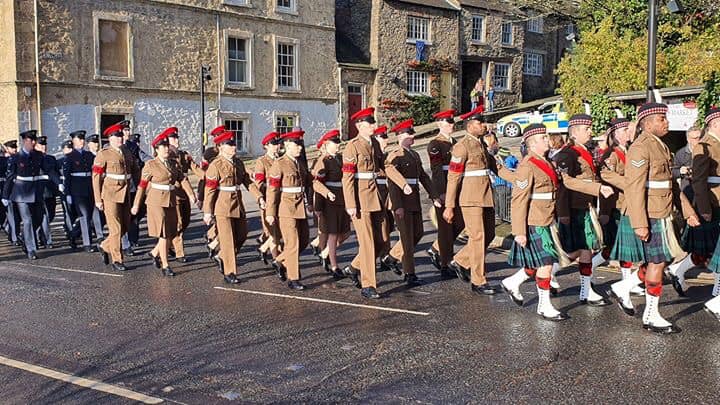
Roles and Responsibilities
| Area | Duties |
|---|---|
| Law Enforcement | Enforcing the Armed Forces Act and maintaining discipline |
| Criminal Investigation | Investigating serious offences such as assault, theft, fraud, sexual misconduct, and drug use |
| Close Protection | Providing armed security to senior commanders and diplomats in hostile zones |
| Traffic and Movement Control | Managing convoys, checkpoints, and movement in warzones |
| Custody and Detention | Operating military prisons and temporary holding facilities |
| Counterintelligence Support | Collaborating with intelligence units on high-level threats |
The RMP operates both in garrison (on UK bases) and in combat environments, including recent deployments to Iraq, Afghanistan, Mali, and Eastern Europe.
Structure of the RMP
The RMP is part of the Adjutant General’s Corps, with a number of operational sub-units, including:
- General Policing Units (GPUs) – routine military policing
- Special Investigation Branch (SIB) – handles serious and complex investigations (transitioning into the Defence Serious Crime Unit)
- Close Protection Unit (CPU) – elite protection details
- Traffic Control Units – manage battlefield logistics and safety
- Custody Units – trained to detain and process service personnel under arrest
Policing Within the Army
RMP soldiers operate like civilian police but with military-specific mandates. They are responsible for:
- Discipline and order in barracks and on deployments
- Responding to incidents involving soldiers — fights, thefts, AWOL cases
- Investigating crimes involving service personnel
- Patrolling military towns and training areas
- Advising commanders on legal and disciplinary matters
- Preparing evidence for courts martial
RMP personnel work closely with:
- Service Prosecuting Authority (SPA)
- Military legal advisors
- Civilian police forces (in joint jurisdiction or civilian offences)
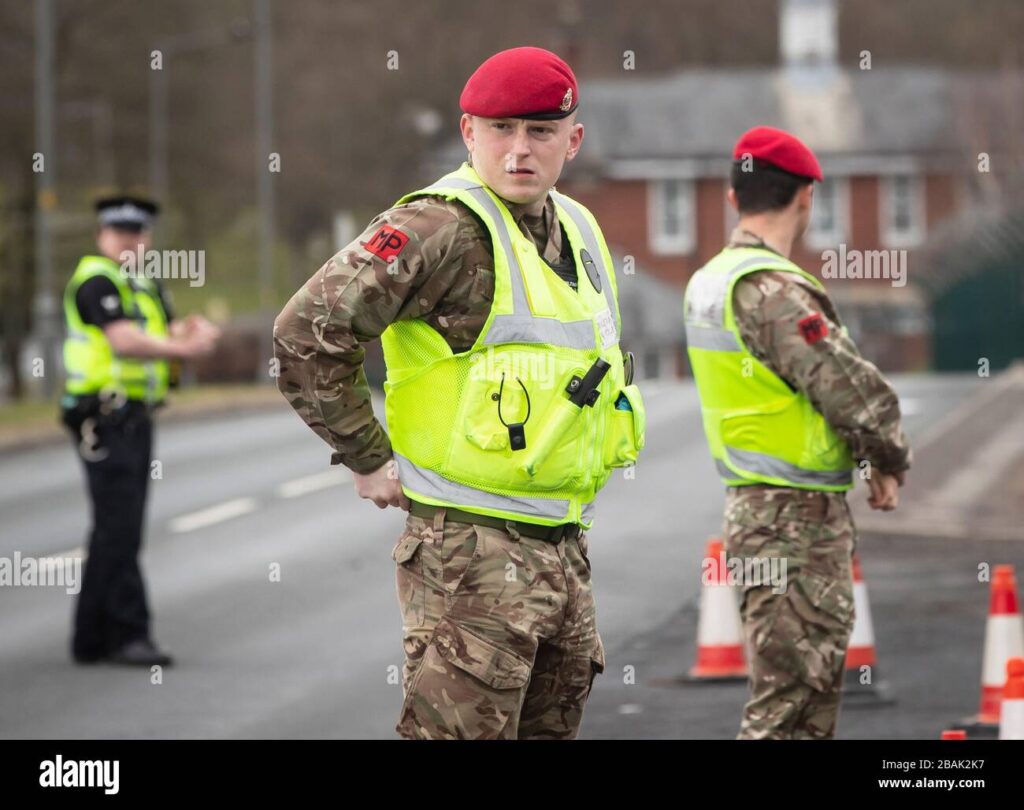
Close Protection Duties
RMP Close Protection Officers (CPOs) are among the best-trained armed bodyguards in the world. They are often deployed to:
- Protect senior British commanders in high-risk warzones
- Guard British Defence Attachés and diplomats in unstable regions
- Escort visiting VIPs and high-value targets
They are trained in:
- Armed convoy protection
- Route reconnaissance
- Surveillance and counter-surveillance
- Counter-assault drills
- Hostile environment awareness
Recent deployments have included protection roles in Kabul, Baghdad, Mogadishu, Tripoli, and Ukraine.
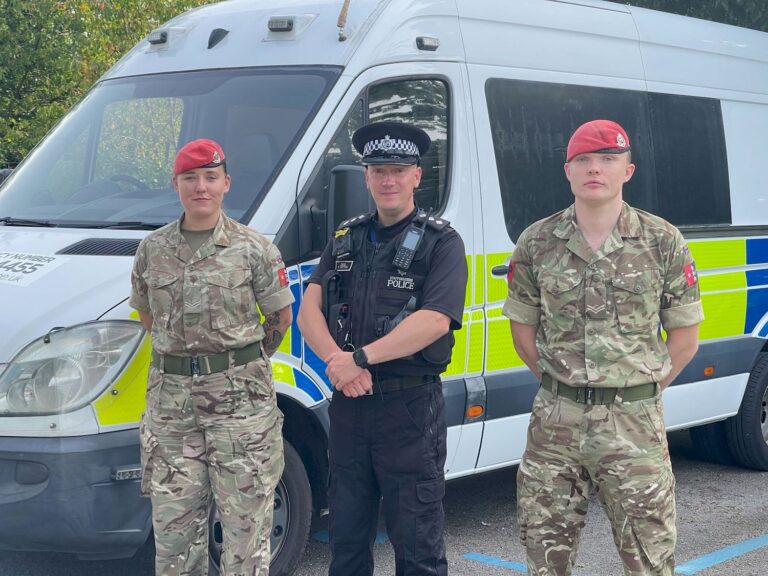
Training to Become RMP
Entry Requirements:
- Age 16–35 (with parental consent if under 18)
- Pass basic Army fitness and aptitude tests
- Enhanced vetting due to access to sensitive material
- Strong communication, observation, and decision-making skills
Phase 1: Basic Training
All RMP recruits complete 14 weeks at the Army Training Centre, Pirbright or similar.
Phase 2: Trade Training
- Conducted at the Defence School of Policing and Guarding (DSPG), Southwick Park
- Includes:
- Arrest and restraint procedures
- Criminal law and military law
- Evidence gathering and statement writing
- Interview techniques
- Patrolling and conflict management
- Self-defence and baton training
- Firearms (for Close Protection roles)
Further training is provided for:
- SIB roles (investigative specialist)
- Close Protection Operators
- Traffic management specialists
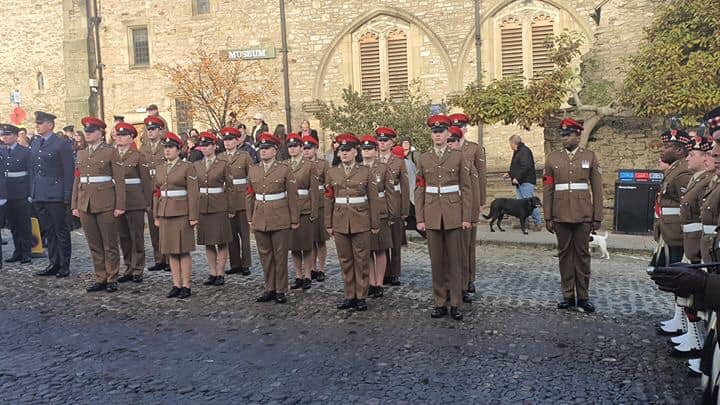
Equipment and Uniform
RMP soldiers wear the distinctive scarlet beret, symbolising their authority and unique status within the Army.
Standard kit includes:
- Body-worn cameras
- Handcuffs and baton
- Digital radios
- Service pistols (for CP roles)
- Evidence collection kits
- Ballistic vests and helmets for deployment
In operational zones, RMP may also carry rifles and deploy in tactical vehicles.
Civilian Equivalence and Future Prospects
RMP experience is highly respected in civilian policing and security sectors. Many ex-RMP personnel go on to:
- Police Constable or Detective roles in UK forces
- Civilian crime scene investigators or intelligence analysts
- Private security or corporate close protection
- MOD Police or international law enforcement agencies (Interpol, UN missions)
- Risk consultancy and crisis response companies
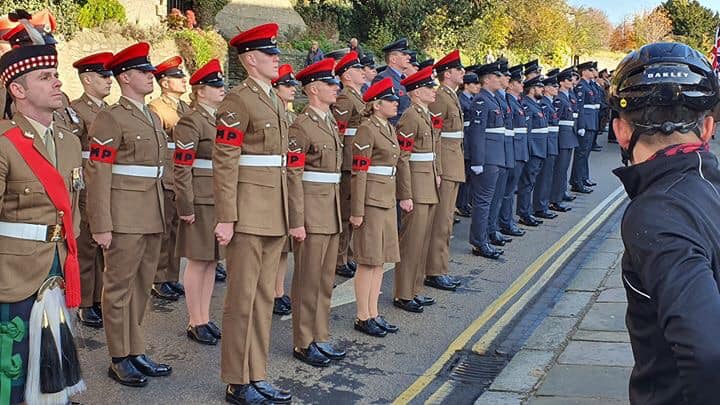
Challenges of the Role
- Dealing with military trauma, violence, and misconduct
- Operating in hostile areas while remaining impartial
- Investigating comrades or senior officers
- Balancing military culture with legal accountability
- Operating across jurisdictions, often without backup
Yet it is also one of the most respected and dynamic careers in the Armed Forces.
Pay and Benefits
| Rank | Approx. Annual Salary |
|---|---|
| RMP Private (after training) | £22,000–£28,000 |
| Corporal (2–4 years) | £33,000+ |
| Sergeant+ | £38,000–£45,000+ |
Other benefits:
- Specialist pay for Close Protection roles
- Paid progression to SIB or CPU
- Pension, 38 days leave, and housing
- Global deployments
- Criminal law training funded by MOD
- Transferable skills and civilian police pathways
Conclusion
The Royal Military Police are guardians of discipline, law, and justice within the British Army. Whether patrolling garrison towns, managing warzone convoys, or investigating criminal activity, the RMP ensures that the Army operates with integrity and accountability.
For those with a strong moral compass, a sharp mind, and a willingness to enforce justice even in the most complex situations, the RMP offers a uniquely rewarding military career — where every decision has impact, and every mission upholds the rule of law.
